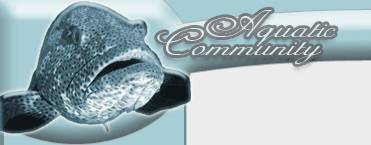Chalk Bass
Serranus tortugarum

Common name: Chalk Bass, Chalk Basslet
Scientific name: Serranus tortugarum
Max size: 3 in / 7.5 cm
pH: 8.1-8.4
Salinity: 1.020-1.025
Temperature: 72-78ºF (22- 26°C)
The Chalk bass is a hardy little fish. Different specimens of this species can look very different from each other. The body has an orange to maroon base color. The top of the fish is darker than the bottom half. Wedges stretch downwards from the top of the fish and the color of these wedges can range from soft blue to soft pink or be almost white. But as I said, this fish shows great variation between specimens and at different ages and this description might therefore not suit your particular specimen very well.
The Chalk bass is native to tropical parts of the Atlantic and the Caribbean Sea.
The chalk bass can be recommended to beginners as it is one of the hardiest marine species available. It can be kept alone in a fish only tank as well as in a reef setup. This species can sometimes be aggressive towards similar sized and smaller fish but is generally friendly as long as fish don't come too close to its cave.
A Chalk bass should be acclimated for at least 3 hours before being released into your marine aquarium.
Chalk Bass care and aquarium setup:
You will need an aquarium no smaller than 20 gallon / 120 L if you want to keep a Chalk bass. If you want to keep several specimens the aquarium needs to be larger and decorated in such a way that each fish can have its own territory and its own cave. I recommend at least a 100 gallon / 400 L if you want to keep a group of Chalk basses.
A deep sand bed is to be preferred and the aquarium should contain a lot of caves, overhangs and other hiding places. This species is generally considered reef save but can sometimes eat small shrimps. They normally leave fish and corals alone. They prefer a well circulated tank with calmer areas where they can rest. The aquarium should contain darker spots.
Try to keep the water quality high and stable even if this is a hardy species that can handle less than ideal conditions.
Feeding Chalk Bass
This is a carnivore fish and the Chalk bass should therefore be fed high protein foods. They might or might not accept pellets. If you are considering getting one you should assume that they don't and then if you buy one and it accepts pellets that is just a bonus. Feed your Chalk bass live food, frozen food and chopped up sea food. It is good to give them vitamin enriched food like vitamin enriched brine shrimps every now and then. Make sure to give your fish a varied diet.
Breeding Chalk Bass
Even thought the Chalk bass is an easy fish to keep and care for it is hard to breed and we have no reports about successful spawning of this species in aquariums. The only information we can provide about breeding Chalk bass is that it is an egg laying species and that breeding it likely requires a large aquarium so that each specimen can have their own territory.
Bass Articles:
Harlequin Bass – Serranus tigrinus
Anthias
Aquarium Chillers
Basses
Batfish
Blennies
Butterflyfish
Cardinalfish
Clown fish
Corals
Damselfish
Files
Goatfish
Gobies
Gorgonians
Grammas
Groupers
Grunts
Hawkfish
Jawfish
Jellyfish
Lionfish
Dragonets
Mantis shrimp
Marine angelfish
Marine Catfish
Moray eels
Nudibranch
Octopus
Pipefish
Protein skimmers
Pufferfish
Rabbitfish
Rays
Snappers
Scorpionfish
Sea Anemones
Sea horses
Sea Stars
Shark Fish
Shrimps
Snails
Squirellfish
Surgeonfish
Triggerfish
Wrasses
